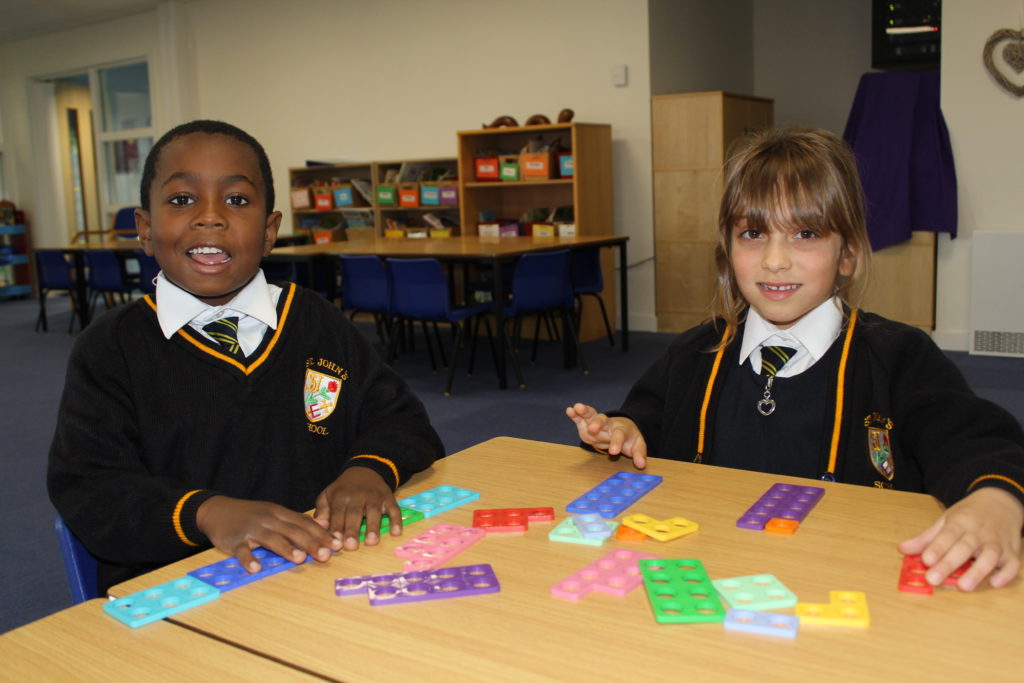Maths At Home
It is very important that the learning which is begun at school is continued at home in order for children to master and become confident in their skills. Learning which will be taking place in class is shared with parents/carers through the curriculum webs which are emailed out at the beginning of each new Context for Learning (either termly or half termly).
Children receive regular homework appropriate for their age group. In addition to the weekly homework set by the class teacher Home Learning projects are also given once a term where children are given a menu of activities to choose between to complete a project based on learning which is happening in class. Home Learning projects are a great way for parents/carers to spend time with their child, getting involved in their learning and talking about things which are happening in school. They are optional projects which children always love bringing into school and sharing with the rest of their class.
As well as completing written homework tasks it is essential that all children read every day at home. We ask that parents/carers support their children by reading with them and then as they become more confident and fluent readers by talking to their children about what they have read, what they liked about a book, if they would recommend it to a friend etc. These conversations about books are just as important as listening to a child read when they are at the initial stages of developing their reading skills and are a fantastic parents/carers to encourage children with their reading.
Parents/carers can also support their children by helping them to develop rapid recall skills for key number facts so that they are able to ‘know’ the facts without having to work them out. For each year group this includes:

St. John’s is committed to the Mastery approach in Mathematics
At St. John’s, children are mathematical thinkers with a knowledge of number embedded so that they can tackle any problem. Pupils think deeply about varied mathematical problems and have quality talk with each other to help them to explain their thinking.
We believe that Mathematics is:
- Achievable for all
- Deep and sustainable learning
- The ability to build on something that has already been sufficiently mastered
- The ability to reason about a concept and make connections
- Being fluent in number facts including numbers bonds and times tables
- Mastery involves the development of three forms of knowledge:
- Factual – I know that
- Procedural – I know how
- Conceptual – I know why
Children must master the curriculum for their year group, so that they have firm foundations to build on the following year.
A whole school times table approach
At St. John's we one times table per half term. There is a specific order in which this is taught in order to build on prior learning and make connections.
Why a focus one TT per half term?
Plasticity of the brain: Neuroscientists tell us it takes approximately 8 weeks of repetition to make a new neural pathway with a myelin sheath - making this 'go to' automated thinking!
Teaching times table is done through:
- Maths lesson time to explore multiplicative reasoning (2-3 lessons per half term focussed on one table).
- Times table practice time to practice specific activities for raid recall activities - 10 mins 3 days per week.
It is important children practice their fluency skills as home. We recommend the following websites as well as MyMaths for which children all have their own individual log ins.
http://www.bbc.co.uk/skillswise/maths/games
https://www.timestables.co.uk/speed-test/
http://www.timestable.co/online-times-table-quiz-test
https://www.mathplayground.com
http://www.numberblocks.tv/ - aimed at Reception and KS1
Maths Toolkit for Parents
Click on the links below to access useful resources at home:
Click the following link to access free printable maths paper:
http://www.mathsphere.co.uk/resources/MathSphereFreeGraphPaper.htm


